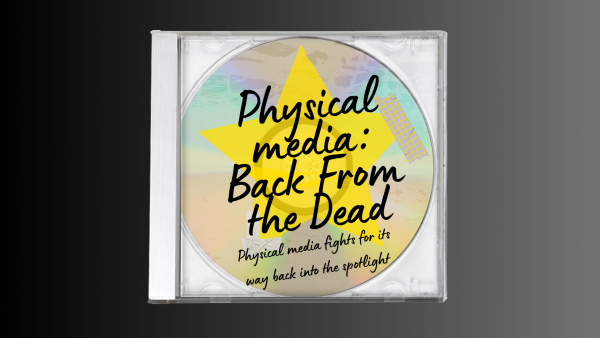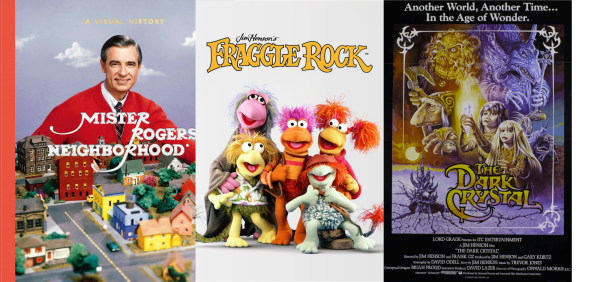“Anna Karenina”: Morals, names, and tipping points
“Anna Karenina”:

Daphne de Maurier’s gothic romance “Rebecca” was published in 1938, and still retains its uniqueness in modern day. A large contributor to this is that the novel is narrated in the first person, yet the name of this character is never revealed. The closest the audience ever gets to knowing is when the narrator- or ‘I’- comments on the fact that she’s surprised someone spelled her name correctly given how uncommon it is. This unamedness is an intentional choice by de Maurier as the novel follows ‘I’ as she meets, falls in love with, and marries the elusive and widowed Maxim de Winter. Shortly after moving to the estate, Manderley, strange things begin happening. She is harassed by the family maid, Mrs. Danvers, subject to ridicule by the local community, and unable to escape the shadow cast by Maxim’s first wife- Rebecca. This is only accentuated by the difference in class, Maxim and Rebecca were incredibly wealthy, and ‘I’ was working as a ladies companion before her marriage. Many criticisms of ‘I’ from other characters revolve around her ‘lower-classness’ or her inability to fill Rebecca’s shoes. The pervading idea of the novel is that, because everyone is still obsessed with Rebecca, she has control of the story over the woman narrating it.
Spoiler begins– near the end of the novel, the unease of the story reaches a fever pitch when the narrator realizes that Rebecca did not die in a boating accident; she was murdered by Maxim. As investigations into Rebecca’s death are reopened, the narrator is forced to confront her marriage and decide how she is going to respond. She decides to stay. De Maurier never judges ‘I’ for this decision, nor conveys to the reader that she should be judged. Rather, it presents the idea that ‘I’ has never had the luxury of having options, and that many of her previous choices were made out of necessity. Thus, wrong as it is, ‘I’ deciding to stay with Maxim indicates that she is gaining power- she is allowed to influence her own story. We shouldn’t judge ‘I’ for making the choice, we should question society for creating the situation- Spoiler ends.
Oddly enough, Leo Tolstoy’s 1878 romantic drama “Anna Karenina” has a similar moral as well as other narrative parallels. Crucially, however, “Rebecca” is an intimate drama that focuses on the interactions between a few people and their obsessions; “Anna Karenina” is an ensemble piece, showing the ways that people make ripples in their community and how societal standards dictate everyone’s lives. Additionally ‘I’ is part of the working class, and unaccustomed to financial surplus while Anna is a princess by birth. Money is a distinct factor in the life of ‘I’ while money is only a concern for the side characters of “Anna Karenina”.
The principle action of “Anna Karenina” is set in motion by the decisions of the title character. Anna is a woman who has been married to her husband Alexei Karenin since she was young. They have a son, Sergei, but their lives are mostly concurrent rather than intertwined. At a debutante ball celebrating the social debut of Katerina (Kitty) Scherbatsky, Anna meets cavalry officer Alexei Vronsky (the name sharing is intentional), with whom she falls in love and begins to have an affair with. Alongside Anna and Vronsky’s doomed romance is Kitty’s growing relationships with Konstantin Dmitrich Levin (Levin), the life of Levin’s brother Nikolai, and the social repercussions of Anna’s brother Stiva Oblonsky having an affair with his children’s nanny.
Tolstoy wastes no time drawing parallels and contradictions between the way Anna and Stiva are treated as a result of their extramarital relationships. Most notably, Stiva is reaccepted into high society and avoids social ostracization while Anna is reviled and loses many friends. On top of this, Stiva’s affair is even validated by some, citing coldness or neglect by his wife while Anna is penalized for being greedy and willfully discontent- soiling the goodness of the Karenin name.
Anna and ‘I’ are both dominated by their name status, ‘I’ for her lack of distinction, and Anna for her lack of existence outside of her husband’s name. Anna is never allowed to be outside of her name, and is given no other personality than being the wife of Alexei Karenin. Vronsky is unfamiliar with most of high society, and thus, views Anna as her own person rather than in relation to someone else. Anna views Vronsky as someone outside the madness of her social circles. It may be misguided, but both of them gain freedom through their relationship. Specifically with Anna, being with Vronsky is the only time she’s had true agency in her life.
Thus, the moral isn’t that having affairs is bad, but rather, that if you trap people in unyielding situations, they will be forced to extremes. The world of Anna Karenina is high-stakes and low risk, a slight fault can ruin someone’s reputation, but they are still far away from the true danger and conflict of the world. So, when Anna reaches her tipping point (like ‘I’ deciding to stay with Maxim), there is disastrous fallout because of the structure of her world. It’s impossible to read the novel and not wonder what might have been had society not been so rigid.
Spoilers for this paragraph– this idea is also conjured by the death of Levin’s brother Nikolai, a radical thinker advocating for social reform/change. Of all the characters in “Anna Karenina”, Nikolai is the one with something to say, the one who has strong beliefs, and the one who never gets to share them. Victor Hugo utilizes this same tragedy in “Les Miserables” through the character Enjolras, a student reformer leading the June Rebellion. The reader walks away with a sense of uncertainty and disappointment knowing that these ideas have died with the person, and wondering what the world could have been.- Spoilers end.
In the midst of these tragedies and questions, Tolstoy manages to imbue “Anna Karenina” with hope. Minor spoiler- The relationship between Kitty and Levin is explored over the course of the entire book, showing the work necessary to make marriages work, but also the beauty that arises from doing this work- minor spoiler ends. The complexity of friendships, and the relationship between parents and children are also delved into- especially with Levin and Anna as they grapple with what it means to be good parents and what it means to be good role models. Regardless of their motivations and personal convictions, all of the adult characters genuinely seem to try and make the world a better place, or at least protect those they care about from the hardships of life. Even at their worst and most destructive, the characters still love, and still try to be good to one another.
There is never any promise that love will be easy, but there is a promise that it is worth it. 10/10 would attend a debutante ball again
Further breakdown:
Writing Quality: 10/10 Enjoyability:10/10
Pace: 9.5/10 Visual elements: N/A
Plot development: 9.5/10 Insightfulness: 9.5/10
Characters: 10/10






